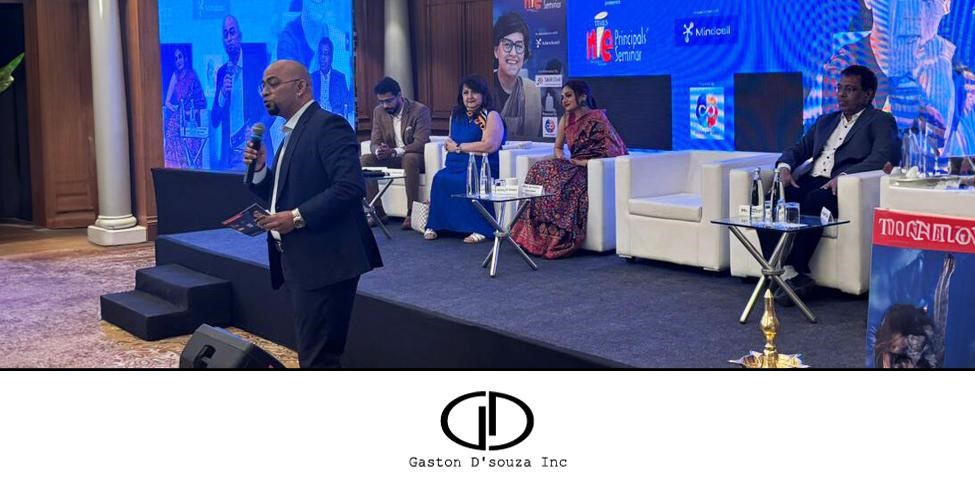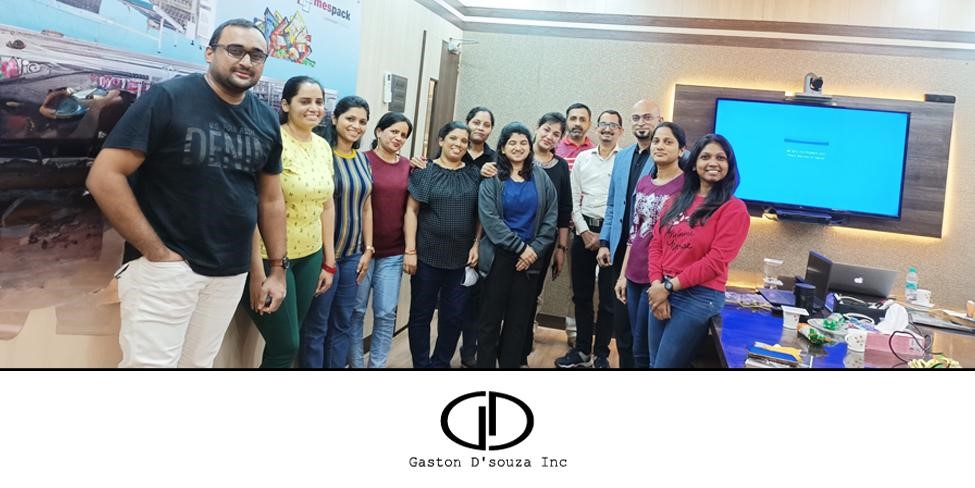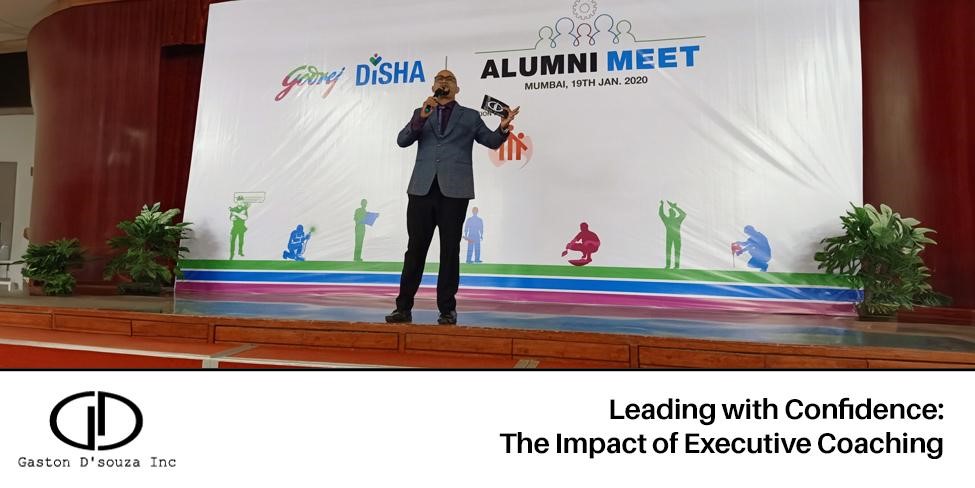What is Executive Coaching?
Executive coaching is a collaborative effort between a professional and an executive to improve leadership abilities and personal growth and reach organizational objectives. This type of coaching offers executives a safe space to evaluate their strengths and areas for improvement, establish impactful goals, and create customized growth strategies. The approach usually includes individual sessions, evaluations, feedback, and personalized action plans to address the individual’s specific requirements and ambitions.
The Importance of Leadership Confidence
Leadership confidence is essential for guiding teams, making decisions, and driving organizational success. It includes self-assurance, decisiveness, and the ability to inspire and motivate others.
Confident leaders build trust, innovation, and resilience within their teams, improving productivity, employee engagement, and overall organizational performance. By investing in executive training to enhance leadership confidence, organizations can foster a culture of empowerment, adaptability, and continuous improvement.
Understanding Executive Coaching
Executive training is a specialized approach dedicated to honing executives’ and leaders’ abilities, expertise, and perspectives. This method entails a personalized interaction between a coach and an executive to boost performance, attain particular objectives, and foster individual and career advancement. This process allows executives to enhance their self-awareness, refine their decision-making skills, and effectively address organizational hurdles.
History and Evolution
Executive counseling originated from the humanistic psychology movement in the 1950s and has since progressed by integrating leadership theories, behavioral sciences, and business strategies. While initially centered on skill enhancement, coaching now encompasses a wider range of areas, including emotional intelligence, cultural awareness, and strategic thinking.
Key Principles and Methodologies
Executive tutoring is founded upon a fundamental framework encompassing confidentiality, trust, and an impartial approach. Coaches employ diverse techniques such as establishing goals, conducting feedback sessions, implementing structured assessments, and engaging in reflective conversations to facilitate the coaching journey.
They utilize strategies like attentive listening, thought-provoking questioning, and questioning assumptions to assist executives in attaining fresh insights, surmounting barriers, and fostering personal and organizational triumph.
The Role of the Executive Coach

The executive coach plays a diverse role, encompassing guiding, supporting, and challenging executives to help them achieve their maximum potential. These coaches act as impartial advisors, providing valuable insights, different perspectives, and constructive criticism to facilitate personal and professional growth.
They assist in clarifying objectives, identifying barriers, and devising practical plans for enhancement, utilizing their extensive knowledge of leadership development and organizational dynamics.
Qualities of Effective Coaches
Effective coaches exhibit interpersonal skills, expertise, and personal qualities. They showcase empathy, active listening, and strong communication abilities, creating a secure and encouraging space for self-discovery and development.
Their profound knowledge of coaching principles, psychological theories, and leadership strategies enables them to customize their methods to suit every client’s individual requirements and objectives.
Building Trust and Rapport
Establishing trust and building a strong connection are essential in the coaching partnership, fostering transparent dialogue, integrity, and openness. Coaches foster trust by exemplifying genuineness, maintaining confidentiality, and valuing the client’s independence. They develop a rapport by actively participating, showing empathy, and displaying a sincere curiosity in the client’s achievements.
Through creating a secure and trustworthy atmosphere, coaches motivate clients to delve into their capabilities, limitations, and ambitions, resulting in heightened self-awareness and long-lasting modifications in behavior.
Assessing Leadership Strengths and Weaknesses
Assessing leadership strengths and weaknesses is essential for both personal and professional development. It entails identifying the essential attributes and competencies that contribute to effective leadership while acknowledging areas needing enhancement. Through comprehensive evaluations, which include self-assessments, 360-degree feedback, and psychometric tests, individuals can acquire valuable insights into their leadership aptitude.
Tools and Techniques for Assessment
A wide range of tools and methods can be utilized to evaluate the strengths and weaknesses of leadership. These include personality assessments, leadership competency models, behavior-based interviews, and performance evaluations. Furthermore, comprehensive feedback from peers, subordinates, and supervisors can be gathered through surveys, questionnaires, and observation techniques.
Identifying Areas for Growth
After identifying strengths and weaknesses, the subsequent stage is to precisely determine particular areas for development. This entails establishing explicit goals and objectives to tackle the identified weaknesses and capitalize on the strengths.
Development plans and strategies can include training programs, coaching, mentoring, job rotations, or additional educational opportunities. The objective is to guarantee a continuous enhancement and improvement in leadership skills and competencies.
Setting Goals and Objectives

In executive coaching, establishing goals and objectives entails creating well-defined and attainable personal and professional growth targets. Coaches and clients work together to pinpoint areas that need improvement, aspirations, and desired results. By implementing specific, measurable, attainable, relevant, and time-bound (SMART) goals, clients can concentrate their efforts efficiently and monitor their progress over time, boosting motivation and accountability.
SMART Goal Setting
SMART goal setting is a valuable approach that guarantees goals are clearly defined and can be acted upon, ultimately leading to success. Coaches play a crucial role in helping clients express their goals in a specific, measurable, achievable, relevant, and time-bound way.
This process promotes clarity and ensures the goals align with desired outcomes. This framework encourages clients to set realistic targets, break them down into smaller, manageable steps, and establish clear criteria for measuring their progress.
Aligning Personal and Organizational Goals
Harmonizing personal and organizational objectives is vital for driving success at both individual and collective levels. Coaches assist clients in exploring how their aspirations align with the organization’s mission, vision, and strategic goals.
By establishing alignment between personal and organizational goals, clients can make meaningful contributions to the organization’s success while fulfilling their professional aspirations. This alignment fosters a sense of purpose, engagement, and commitment, leading to greater satisfaction and effectiveness in achieving personal and organizational objectives.
Developing Leadership Skills
Cultivating robust leadership skills is crucial to thriving within any organization. Successful leadership encompasses a diverse range of capabilities, such as establishing a vision, strategic planning, effective communication, delegation, and motivating others. Additionally, leaders must excel in driving change, handling conflicts, and fostering innovation. Individuals can elevate their leadership abilities and evolve into more impactful leaders through a commitment to ongoing growth and improvement.
Communication and Emotional Intelligence
Effective leadership requires strong communication skills and emotional intelligence. Skilled communicators can inspire, motivate, and influence individuals. Leaders must possess the capability to communicate efficiently with various stakeholders, such as employees, customers, senior management, and the general public.
Emotional intelligence is equally important, as leaders should be mindful of their own emotions and those of others. This involves effectively managing and controlling emotions, showing empathy towards others, and fostering meaningful connections.
Decision Making and Problem Solving
Leadership skills encompass decision-making and problem-solving, which are fundamental abilities for effective leaders. Leaders must be able to analyze intricate scenarios, collect relevant information, and formulate strategic decisions.
This entails assessing and comparing various options, considering the potential outcomes, and effectively communicating the chosen course of action. Equally vital are problem-solving skills, as leaders must identify the underlying causes, devise alternative solutions, and execute efficient plans. The ability to think innovatively and make well-founded decisions under pressure is imperative for leaders.
Overcoming Challenges and Obstacles
Successfully addressing challenges and hurdles in executive coaching requires providing clients with the tools and tactics to effectively navigate through adversity and setbacks. Coaches play a crucial role in assisting clients in recognizing potential obstacles to achievement, building resilience, and fostering a mindset focused on growth. By viewing challenges as chances for personal development and progress, clients can embrace proactive problem-solving methods and conquer obstacles with assurance and perseverance.
Strategies for Resilience
Effective resilience strategies are crucial for sustaining productivity and well-being during difficult times. Coaches play a key role in helping clients strengthen their resilience by improving their coping mechanisms, nurturing a positive outlook, and encouraging self-care routines. By incorporating mindfulness, gratitude, and positive thinking, individuals can cultivate resilience to overcome obstacles, adjust to new circumstances, and excel in demanding situations.
Handling Pressure and Stress
Managing pressure and stress is essential for maintaining performance and well-being in high-pressure settings. Coaches collaborate with individuals to pinpoint stressors, create coping mechanisms, and strengthen emotional resilience.
By utilizing mindfulness, effective time management, and setting boundaries, individuals can successfully navigate pressure, stay focused, and uphold a healthy work-life balance. By fostering self-awareness and implementing stress-management techniques, individuals can improve their capacity to handle pressure and excel in challenging leadership positions.
Building Confidence and Self-Efficacy

Confidence and self-efficacy play a vital role in effective leadership. Developing confidence entails believing in one’s leadership abilities and strengths. On the other hand, self-efficacy involves faith in one’s ability to accomplish tasks and reach goals successfully.
Leaders can boost their confidence and self-efficacy by taking on new challenges, setting realistic goals, reflecting on past achievements, and seeking guidance and feedback from mentors or coaches. Cultivating a growth mindset and embracing lifelong learning are essential for nurturing confidence and self-efficacy.
Techniques for Boosting Confidence
Various strategies exist to enhance confidence levels. These encompass positive self-talk, visualization, establishing attainable objectives, forming a strong support system, and acknowledging accomplishments. Participating in professional growth opportunities like workshops or conferences can further improve expertise and capabilities, ultimately boosting confidence. Moreover, receiving input from reliable peers or mentors can offer valuable perspectives and affirmation, strengthening one’s self-assurance as a leader.
Overcoming Imposter Syndrome
Imposter syndrome is a common phenomenon in which individuals doubt their accomplishments and worry about being exposed as frauds despite evidence of their abilities. To conquer imposter syndrome, one must confront self-doubt, change negative thinking, and focus on past achievements.
Additional strategies include building a support network, finding mentors, practicing self-kindness, and seeing failures as growth opportunities. Developing a positive outlook and recognizing one’s value and impact are crucial for addressing imposter syndrome and boosting leadership confidence.
Measuring Progress and Success

Evaluating progress and achievements in executive coaching entails comparing the client’s advancement with established goals and targets. Coaches employ various techniques to measure progress and pinpoint areas needing enhancement, including performance indicators, feedback questionnaires, and self-evaluations. Through monitoring key milestones and results, clients can see their development, acknowledge successes, and remain inspired during the coaching process, cultivating a feeling of fulfillment and empowerment.
Tracking Development
Monitoring progress involves systematically observing behavior, abilities, and attitudes shifts as time progresses. Trainers utilize qualitative and quantitative information to monitor progress, documenting concrete and abstract signs of improvement.
Routine evaluations, advancement assessments, and reflective activities empower individuals to oversee their development, modify approaches when necessary, and uphold their commitment to achieving objectives.
Evaluating the Impact of Coaching
Assessing coaching’s effectiveness and return on investment (ROI) requires evaluating its impact. Coaches and clients work together to determine how much coaching has contributed to desired outcomes, such as improved performance, increased confidence, and enhanced leadership effectiveness.
By gathering feedback from various stakeholders and comparing pre- and post-coaching measurements, clients can evaluate the tangible and intangible benefits of coaching. This evaluation process helps inform future development efforts and organizational investments in coaching initiatives.
Continuous Growth and Development
In the ever-changing business world, leaders must focus on growth and innovation by staying updated on industry trends, acquiring new skills, and embracing new technologies. Continuous learning helps leaders adapt to change, foster innovation, and navigate uncertainty. Leaders can stay ahead and improve their leadership skills by seeking growth opportunities like workshops, networking, and self-reflection.
Sustaining Leadership Confidence
Maintaining leadership confidence is vital for long-term success. It empowers leaders to make bold decisions, inspire others, and overcome obstacles. Leaders should regularly engage in activities that enhance their skills and abilities to uphold confidence.
This includes seeking feedback, learning from past experiences, building a strong support system, and prioritizing self-care. Additionally, leaders should continuously push their limits, set meaningful goals, and recognize achievements to maintain a positive outlook and strengthen their confidence.
Future Trends in Executive Counseling
Executive training is essential for developing leaders and achieving organizational success. It will incorporate more virtual and remote coaching options, using technology for personalized coaching experiences. There will also be a greater emphasis on building emotional intelligence, resilience, and adaptability in leaders.
Additionally, executive coaching will expand to include team coaching and group interventions, recognizing the importance of collaborative leadership and team development. As organizations evolve, executive training will continue to be crucial for enhancing leadership abilities.
Conclusion
Executive training provides a transformative experience for leaders by enhancing self-awareness, developing skills, and making a positive impact on the organization. With tailored support, individuals can unleash their capabilities, leading to progress, creativity, and long-term career achievements.







